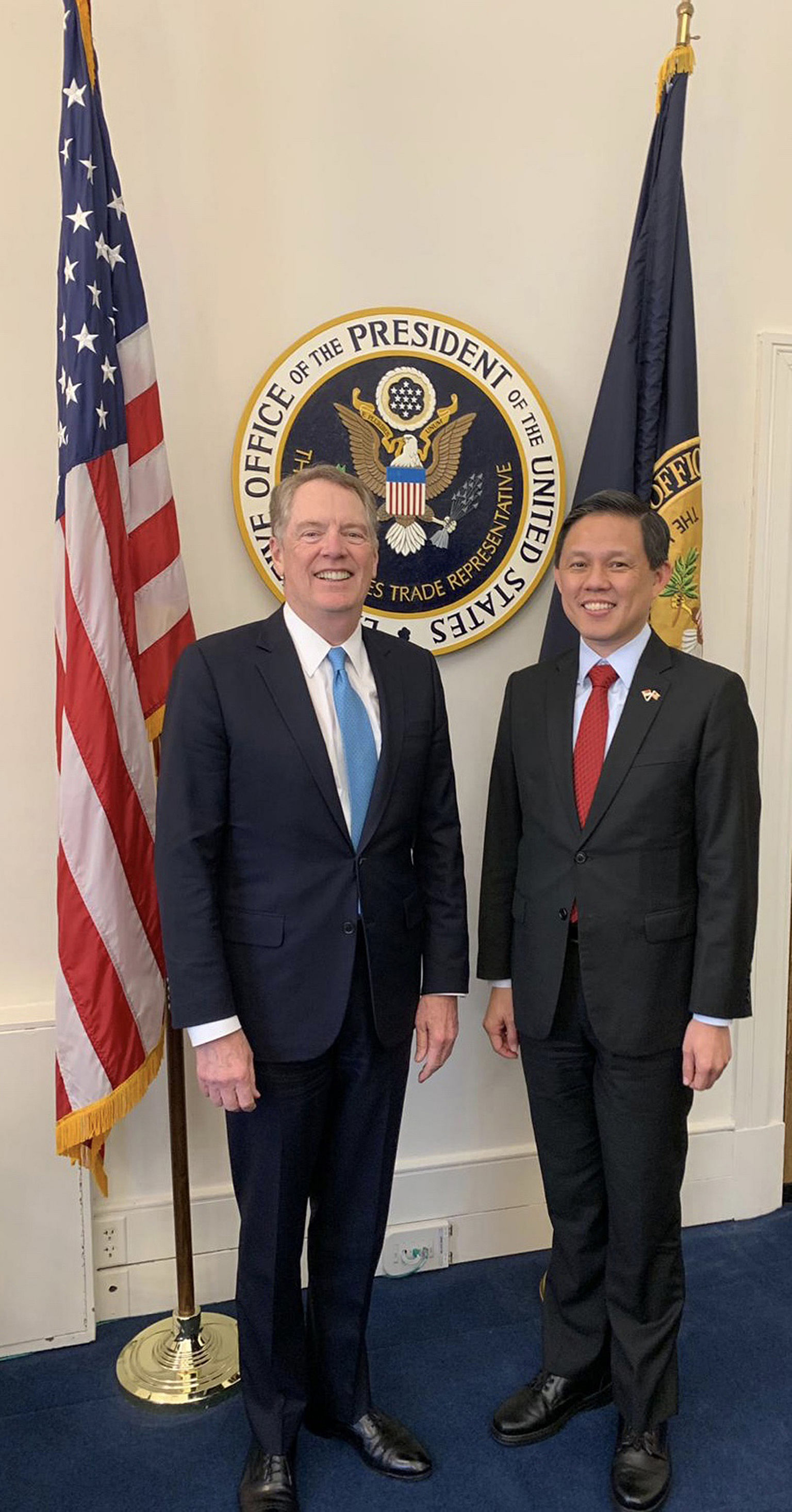The United States should continue to stay engaged in South-east Asia, said Singapore's Minister for Trade and Industry Chan Chun Sing at the end of his first official visit to Washington.
"South-east Asia is a critical part of their wider geopolitical, geostrategic picture and it is in their interest to continue to stay engaged with it, not just economically but geopolitically," Mr Chan said on Thursday. His comments in an interview with Singapore media come amid rising competition between the US and China in the Asia-Pacific region.
Despite the emergence of areas of competition between the two powers, Mr Chan made clear that Singapore's position in these sectors would be guided by principles and economic considerations, not geopolitical concerns.
Infrastructure development has been a key arena of competition, with South-east Asian countries having several options for infrastructure investment - from China's billion-dollar Belt and Road Initiative (BRI) to a trilateral partnership between the US, Australia and Japan.
During Mr Chan's visit, Singapore inked an agreement with the US to promote infrastructure development and investment in Asia.
He said Singapore could offer its financial and legal expertise to infrastructure projects regardless of whether they are part of the China-led BRI or the US-led scheme.
"Both the US and Chinese see us as a trusted partner. We value all the projects on economic grounds, we look at the commercial viability of each and every project seriously, without any non-economic considerations," he said.
The role both countries play in developing infrastructure is not mutually exclusive, he said, adding: "I won't rule out that there will be occasions they'll be able to complement each other as well."

The US has been urging countries to ban equipment from Chinese technology giant Huawei in their 5G networks over fears that it could be used to spy on them, charges Huawei has denied.
Singapore's telcos have used Huawei equipment in their 5G trials, but Mr Chan said that he did not discuss this issue with US officials during his visit.
"Singapore's position on any technology is guided by the following principles: whichever technology we adopt, we want to make sure that it is safe and secure, robust, resilient and reliable. And we'll continue to evaluate all the technologies based on the above criteria," he said.
During his trip, Mr Chan also met business leaders and diplomats at a US-Asean Business Council lunch, as well as US Trade Representative Robert Lighthizer and Treasury Secretary Steven Mnuchin.
Both are key members of the US delegation seeking a trade deal with China and will be in Beijing next week for a fresh round of trade talks.
Mr Chan said that the US and China still had quite a number of short and long-term issues to resolve, but were going into trade negotiations in good faith.
"There will be adjustments regardless of the outcomes of the talks. There will be shifts in the global supply chains and this will have a direct and indirect impact on our economy."
But the climate for global investment would benefit if the US and China have a good relationship over the longer term.
"The rest of the world is watching closely to see how they can both resolve their differences and at the same time uphold the global trading system," Mr Chan said.
"The larger issue is... how the US plays a role in global institutions to set and enforce rules so that everyone in the world can have a stable, critical rules-based system for trade to flow and for economic development to progress."
